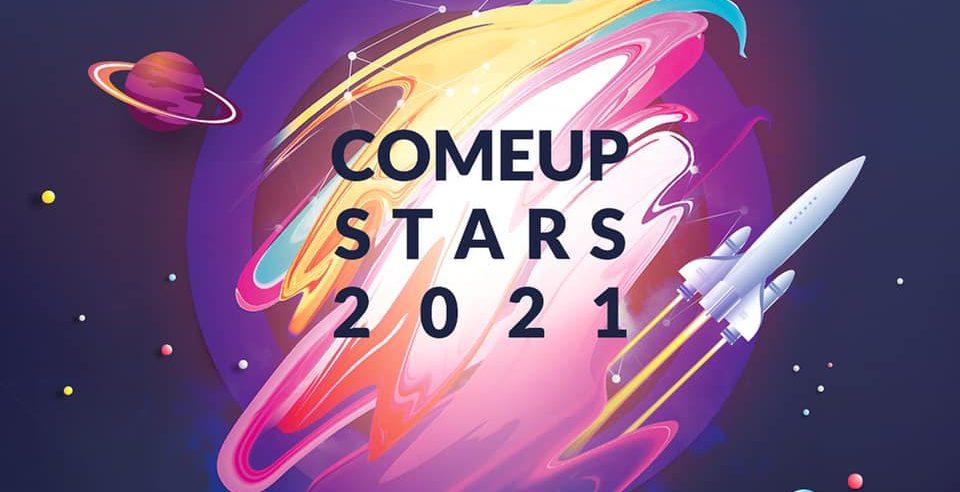The Korean Ministry of SMEs and Startups announced last week the final 72 domestic and foreign startups that will participate in the most prominent accelerator event in South Korea – COMEUP 2021. Fashion unicorn startup ZigZag has record transactions and Kakao Webtoon winning fans in Thailand and Vietnam. Also, EduTech startup Riiid researchers’ work get recognition at top global AI and EdTech conferences.
Final selection of 72 domestic and foreign innovative startups ‘Come Up Stars’
Source: Ministry of SMEs and Startups

The selection result of ‘COMEUP STARS’ to participate in ‘COMEUP 2021’, the largest startup event in Korea, has been released. COMEUP Stars is a program that discovers startups that lead innovation in the global ecosystem.
The COMEUP event provides exchange between startups, global investment biz matching, and overseas expansion opportunities. It has two leagues for the startup selection – ‘Rocket League’ that can grow into the next unicorn and the ‘Rookie League’ with great potential. The ‘Rocket League’ selected 36 innovative startups that possess expertise and can grow into the Next Unicorn through Korea Venture Investment recommendation. 72 innovative startups were finally selected after the 2nd stage evaluation (1st document, 2nd online announcement) and deliberation by the COMEUP Organizing Committee.
Looking at the statistics of participating companies selected as COMEUP Stars even in the face of great changes due to COVID-19, of the 72 selected companies are 56 domestic (77.8%) and 16 overseas (22.2%), which is shows a high level of interest in the event. In particular, out of 161 companies from 36 countries that applied overseas, 16 companies from 7 countries were selected, followed by Singapore (6) the most, the US (3), and Israel and Thailand (2). In terms of experience, 28 companies (38.9%) started with 3 to 5 years of experience, followed by 20 (27.8%) startups in the first to 3 years, with an average of 3.4 years.
Zigzag, accumulated transaction amount exceeded 3 trillion won
Source: Platum

As of August this year, the accumulated transaction amount of the style commerce platform ‘ZigZag’ operated by Kakao Style exceeded 3 trillion won. ZigZag, launched in June 2015, achieved a cumulative transaction value of KRW 1 trillion in December 2018, three and a half years after its launch. As the transaction amount grew, it exceeded KRW 2 trillion in June 2020, and the accumulated transaction amount exceeded KRW 3 trillion in August of this year, the first in a year and two months.
Currently, the cumulative number of ZigZag downloads is more than 32 million, and there are about 5,500 stores and about 3.6 million monthly users. Based on continuous growth this year, such as achieving the highest monthly transaction amount of KRW 90 billion in June, it is expected to achieve KRW 1 trillion in transaction value in 2021. ZigZag explained that the fact that it has provided users with a new shopping experience over the past six years has been instrumental in the steady increase in transaction volume.
Kakao Webtoon takes the lead in Thailand’s toons
Source: Koreajoongangdaily
 Kakao Entertainment’s new webtoon app Kakao Webtoon topped the webtoon app charts in Thailand in terms of revenue for August, beating its rival Naver’s webtoon app, just three months after its release in June.
Kakao Entertainment’s new webtoon app Kakao Webtoon topped the webtoon app charts in Thailand in terms of revenue for August, beating its rival Naver’s webtoon app, just three months after its release in June.
Kakao Webtoon was the No. 1 grossing webtoon app between Aug. 1 and 31 on both Google’s Play Store and Apple iOS’s App Store in Thailand. It was also the most-downloaded app in the category between that same period.
The app was released in Thailand on June 7. It recorded 370 million won ($316,000) in revenue within four days of the app’s release and shot up to the top of the daily download rankings in the country. Kakao Entertainment credited the growth to the increasing development in the country’s 3G and 4G data infrastructure in Thailand.
Riiid research papers demonstrate technology advancement and pioneership in the field of AI for education
Source: Riiid

Riiid, a leading AI for education company, announced that six papers by its researchers have been accepted this year at top global AI and EdTech conferences, including International Learning Analytics and Knowledge Conference (LAK), the International Conference on Artificial Intelligence in Education (AIED), and International Conference on Educational Data Mining (EDM). The papers demonstrate the learning effect of AI in education and verification of AI model reliability.
“AI in education (AIEd) is where diverse fields such as learning science, pedagogy, and cognitive psychology work in a comprehensive manner,” said Jason Juneyoung Park, AI Research Lead at Riiid. “Riiid has been collecting anonymized data since 2015 when AI was not receiving much attention, and we continue to put our focus in AIEd research and widen technological advancement in research capabilities.”
Two papers accepted at LAK 21 in March are studies on predicting learning behaviors and maximizing learning effects. The paper, ‘SAINT+: Integrating Temporal Features for EdNet Correctness Prediction,’ defines and applies data related to learning time such as problem-solving time and answer submission time to dramatically increase the accuracy of the answer correctness prediction algorithm. In the other paper titled, ‘Recommendation for Effective Standardized Exam Preparation,’ an algorithm is presented that selects and recommends problems that maximize the learning effect by predicting learners’ learning skills and improve those skills with additional learning tools such as online lecture videos.
At AIED 21, Riiid’s paper was recognized for diagnosing the learner’s learning status with minimum questions and assessing the reliability of the prediction model. At EDM 21, a Riiid paper highlights a structure for increasing reliability of AI models and improving learning deviations and score prediction algorithms. In particular, the paper’ Knowledge Transfer by Discriminative Pre-training for Academic Performance Prediction’ accepted at EDM was nominated for best paper. The paper proposes a method for reducing the error rate compared to the current highest accuracy model by four percent by applying the latest natural language processing technology for the first time in AIEd.






